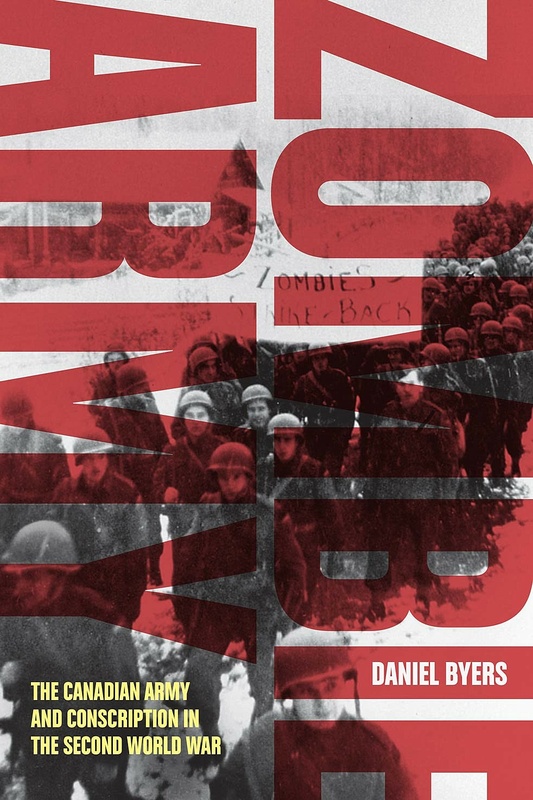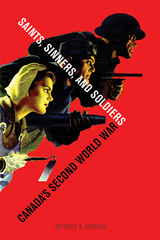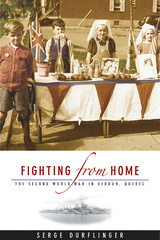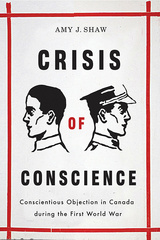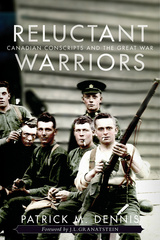Our shopping cart is currently down. To place an order, please contact our distributor, UTP Distribution, directly at utpbooks@utpress.utoronto.ca.
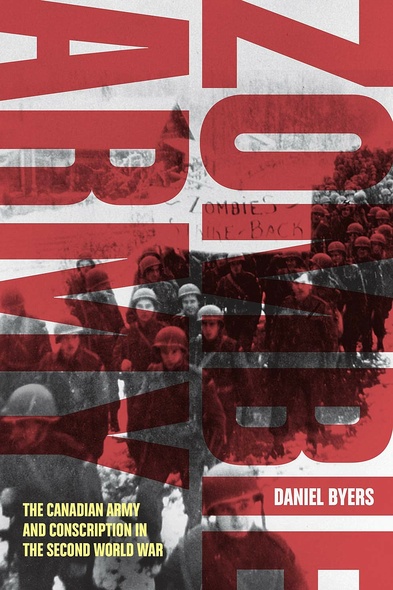
Zombie Army tells the story of Canada’s Second World War military conscripts – reluctant soldiers pejoratively referred to as “zombies” for their perceived similarity to the mindless movie monsters of the 1930s. As Byers argues, although conscripts were only liable for home defence, they also soon came to be a steady source of recruits for active duty overseas.
While Canadian generals were criticized for championing an overseas army too large to maintain through voluntary enlistment – inevitably leading to calls to send conscripts to Europe and a political crisis that almost tore apart the federal government – until now there has been little satisfactory explanation for why military leaders pushed for (and politicians accepted) such a sizeable overseas force.
In the first full-length book on the subject in almost forty years, Byers combines underused and newly discovered records to argue that although conscripts were only liable for home defence, they soon became a steady source of recruits from which the army found volunteers to serve overseas. He also challenges the traditional nationalist-dominated impression that Quebec participated only grudgingly in the war.
Zombie Army will appeal to scholars and students of military history, Canadian social history, and political history, as well as anyone seeking a more nuanced understanding of how Canadians responded to the Second World War.
Zombie Army tells the whole arresting story with an even hand and smart commentary. The work is as compelling as the subject.
…by far the most complete account to date of conscription in Canada during the Second World War.
Zombie Army adds yet another important study to the large codex of Canadian Second World War literature, adding new life to a topic that has not been investigated in detail for many years.
Somewhat ironically given the book’s title, Zombie Army is a very human story about the Canadian World War II experience. It deserves a prominent place in both libraries and university classrooms.
Byers provides us with an impeccably researched look at the daily grind of these soldiers, the way they were perceived by the local populations, their ethnic composition, or where and how they served.
Since it illustrates a topic that could not have been written in earlier decades, there is much for the Second World War historian to learn from Zombie Army.
Under Canada’s National Resources Mobilization Act of 1940, thousands of men were forced to serve their country. Byers ably brings to life the story of these conscripts – who they were, where they came from, and what happened to those who served and those who refused to do so.
Zombie Army is a masterful account of compulsory military service during the Second World War. Byers skilfully links voluntarism with compulsion, home front to battle front, and political strategy to war fighting.
Introduction
Part 1: The Historical Legacy
1 Conscription and Canadian History, 1627–1939
Part 2: The National Resources Mobilization Act and the Rise of the Big Army
2 Mobilizing Canada: The Creation of the Thirty-Day Training System, 1939–40
3 Enshrining the NRMA: Compulsory Military Service, 1940–41
4 Creating the “Big Army”: Conscription and Army Expansion, 1941–43
Part 3: Canadian Conscripts and Their Experiences During the War
5 Canada’s Zombies, Part 1: A Statistical Portrait
6 Canada’s Zombies, Part 2: Life in Uniform
Part 4: The Fall of the Big Army
7 “No stone … unturned”: The Failure of Conscription and the Big Army, 1943–44
8 Revolt or Realization? The NRMA and the Conscription Crisis of 1944
Part 5: The Aftermath
Epilogue: Conscription and Canadians in the Second World War
Appendix I: The National Resources Mobilization Act, 1940
Archival Sources Consulted; Notes; Index
Endnotes

